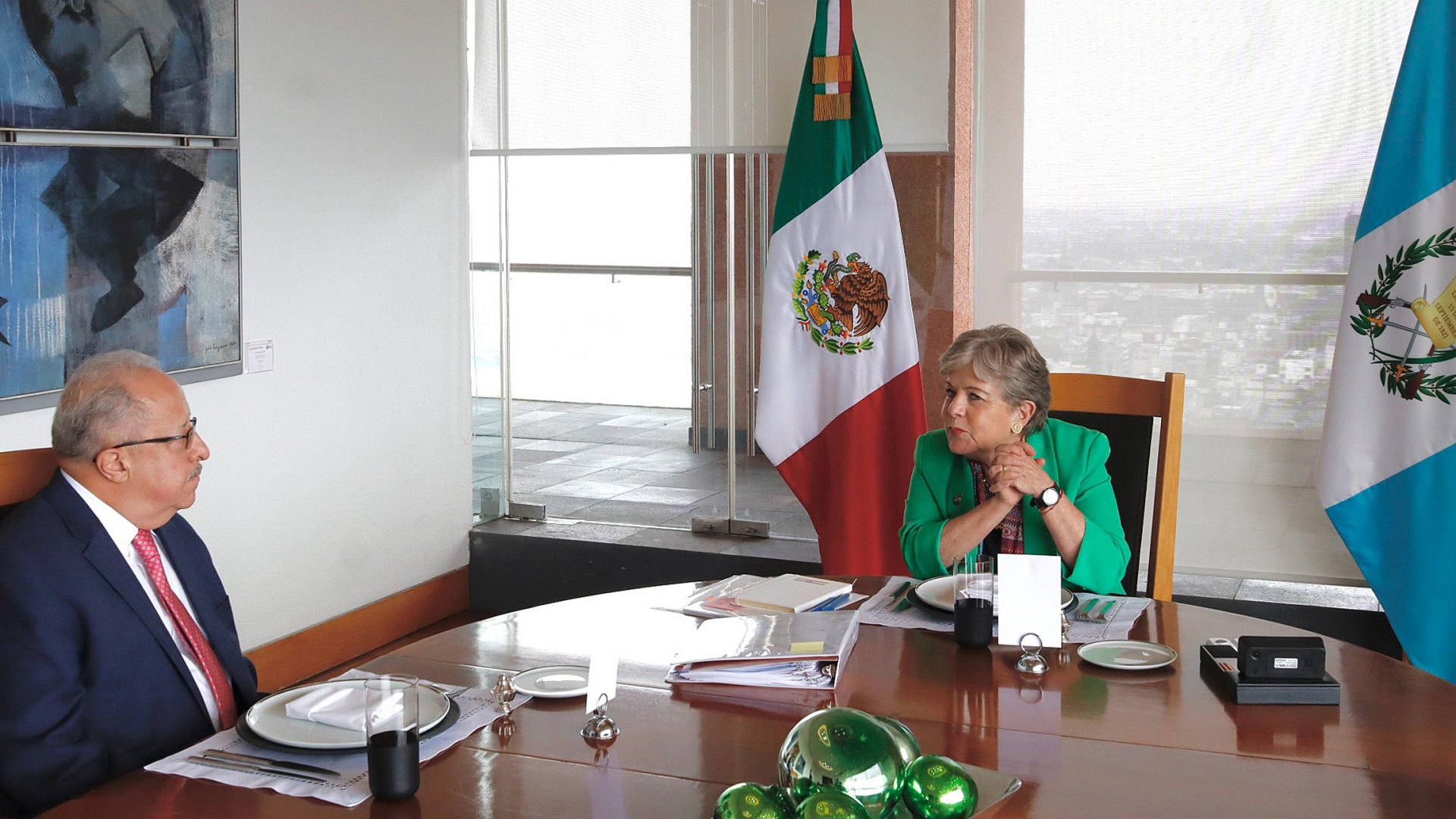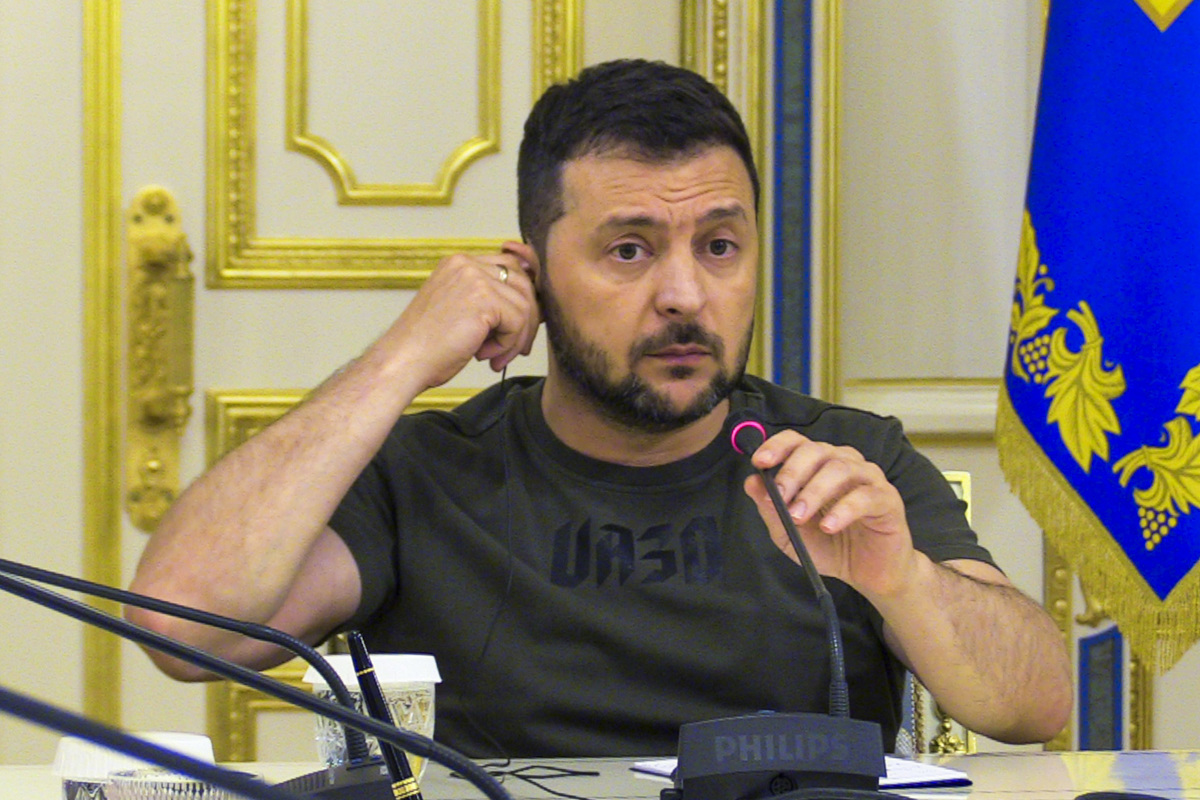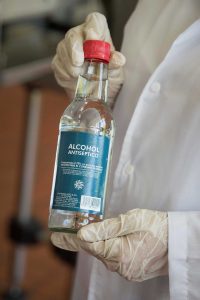
By Alicia Hernandez and Jorge J. Muñiz Ortiz
Caracas/San Juan, Mar 29 (EFE).- Quite apart from differing ideologies and from normal market competition, right now Puerto Rico and Venezuela have a single objective in mind: producing alcohol together to fight the Covid-19 pandemic that does not distinguish among skin colors, races or social classes.
The production of rum, the liquor so valued in the Caribbean and in the rest of the world, has given way to the production of alcohol for disinfectant use at Puerto Rico’s world-renowned Bacardi and Serralles distilleries and at the prestigious Santa Teresa distillery in Venezuela.
The three companies decided to reallocate a significant portion of the alcohol that – until now – they had used in the production of rum to the manufacture of disinfectant gel and antiseptics, as well as to bottling it as high-proof alcohol for sanitary use.
Bacardi and Serralles have joined hands to produce and distribute ethyl alcohol (also known as grain alcohol or ethanol) to hospitals, hospices and geriatric centers to enable users to disinfect surfaces that may have become contaminated with the coronavirus – or other microorganisms – given the current scarcity of that product in Puerto Rico.
In addition, the firms are using the chemical to make disinfectant gel as a substitute for hand-washing with soap and water to minimize the transmission of the virus.
To kill or neutralize the coronavirus, antiseptics must have at least a 70 percent concentration of alcohol, chemical engineer and vice president of Bacardi’s supply and manufacturing chain in Latin America and the Caribbean Jose Class said, adding that the companies currently are not concerned with competing with each other and are seeking only to move in the same direction together.
Meanwhile, the president and CEO of the Serralles Distillery, Philippe Brechot, who promoted the idea three weeks ago, said he was proud to have been able to help support the effort.
“It’s giving us a lot of pride, and we’re seeing in the news that distilleries in the US and Europe have also joined and they also have the ability to produce alcohol. It’s not a question of competition, and when help is needed, you have to help,” Brechot told EFE.
The Santa Teresa distillery had a clear vision of what was needed. Venezuela, where millions of people have gotten by by helping one another in the recent tough economic times, now needs more support than ever and the rum company took the plunge: diverting 60 percent of the alcohol it previously allocated to liquor production to the world’s fight against the virus.
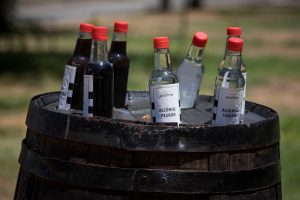
This week, the firm began producing antiseptic alcohol to alleviate the scarcity of disinfectant amid the growing demand in a country where not everyone even has access to potable water.
In less than 10 days, distillery workers revamped the production and bottling assembly lines, created special labeling and got the necessary health and financial permission in “record time,” Andres Chumaceiro, one of Santa Teresa’s managers, told EFE.
“The team began an intense process of work to design, get the permits and materials to be able to provide the country with an antiseptic solution that would allow us to attack this pandemic in Venezuela,” he said.
In Puerto Rico, just as in Venezuela, the bureaucracy forced the companies to go through complicated and previously unfamiliar procedures to manage their raw materials in a completely different way from what they were used to.
Amid the difficulties, Bacardi decided to take an extra step: to look for a way to convert ethanol into disinfectant gel and in the process it came to an agreement with the local Olein Recovery refinery for producing the sanitizer.
“What we’re using, as a raw material, is sugar cane molasses, which has sugars in it. Then, we ferment it with yeast. When it ferments, it converts itself into ethyl alcohol. After that, we distill it at different concentrations. We distill it at the 94-95 percent level and Olein ends up processing it,” Class said.
Along the same lines, Santa Teresa chemical engineer Javier Angarita told EFE that “the industrial use (alcohol) goes to the companies in the cosmetic, health and pharmaceutical sector, to make gels and alcohols for direct use. Before that, it goes through a denaturing process so that it’s not suitable for human consumption.”
As per one of the executive orders issued by Puerto Rico Gov. Wanda Vazquez, which seeks to limit gatherings of people but allow the operation of companies producing essential services to control the spread of the virus, Bacardi reduced its production staff from 150 people to about 20.
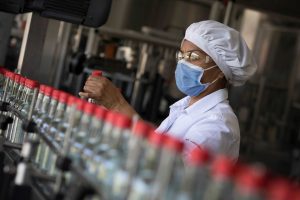
Santa Teresa has also been affected by the “national social quarantine” declared by Venezuelan President Nicolas Maduro on March 17 and, although the alcohol production lines have not been halted, just 8 percent of the payroll is still on the job.
With shrunken staffs, the rum companies are working hard to get alcohol and its derivatives to every corner of their respective territories.
Hospitals, health centers and other sanitary facilities in various communities, along with pharmacy chains are just some of the beneficiaries of the solidarity among the rum distilleries.
But both in Venezuela and in Puerto Rico, the top executives at the distilleries are well aware that their sanitary products are going to people with faces and names, and with whom they cross paths every day.
Community leaders, mail delivery personnel, police officers, fire fighters, grocery store employees and low-income families in neighborhoods near the distilleries are the other side of the coin. These people – although not healthcare workers per se – are also providing their labor in the fight against Covid-19 and they are using the alcohol products to keep themselves safe from infection.
Even as it continues to turn out health-related alcohol, however, Santa Teresa will continue stockpiling in “big tanks” 40 percent of the sugar cane alcohol it distills each day, awaiting better economic times when the pandemic has been brought under control and it can once again turn out rum, aging it – like always – for two years in white oak casks.



